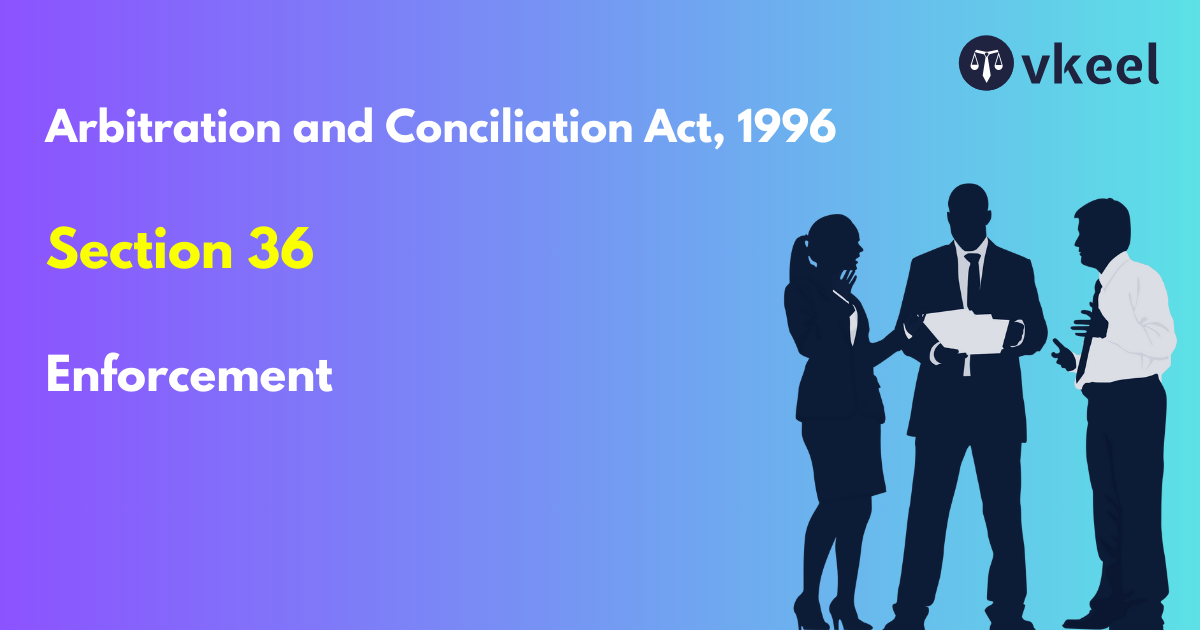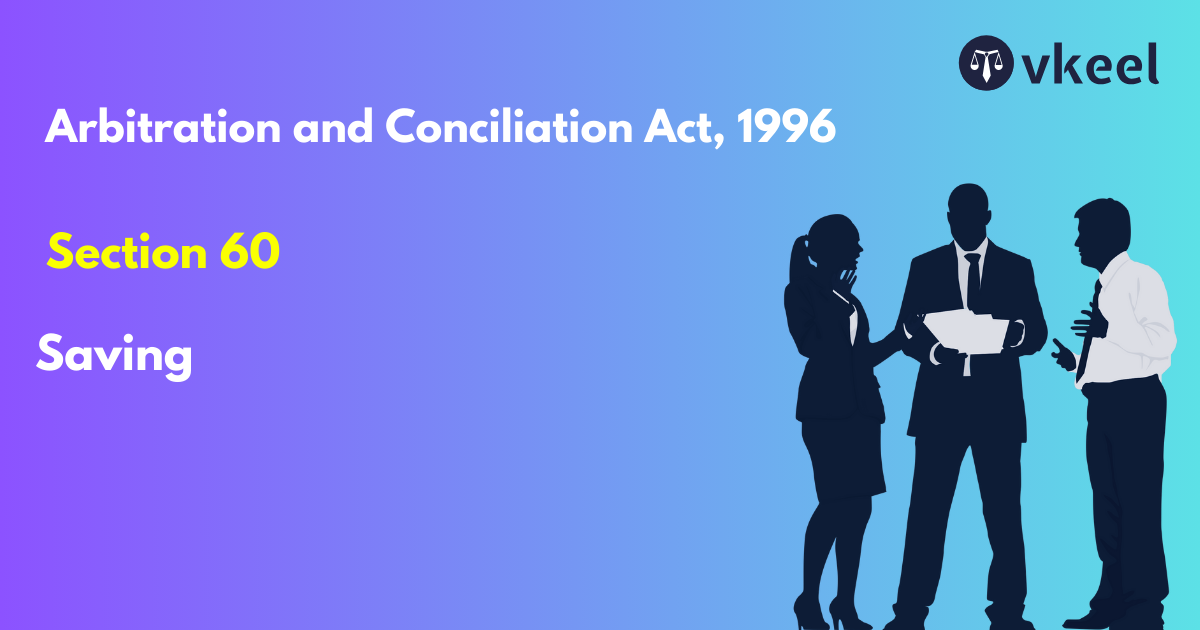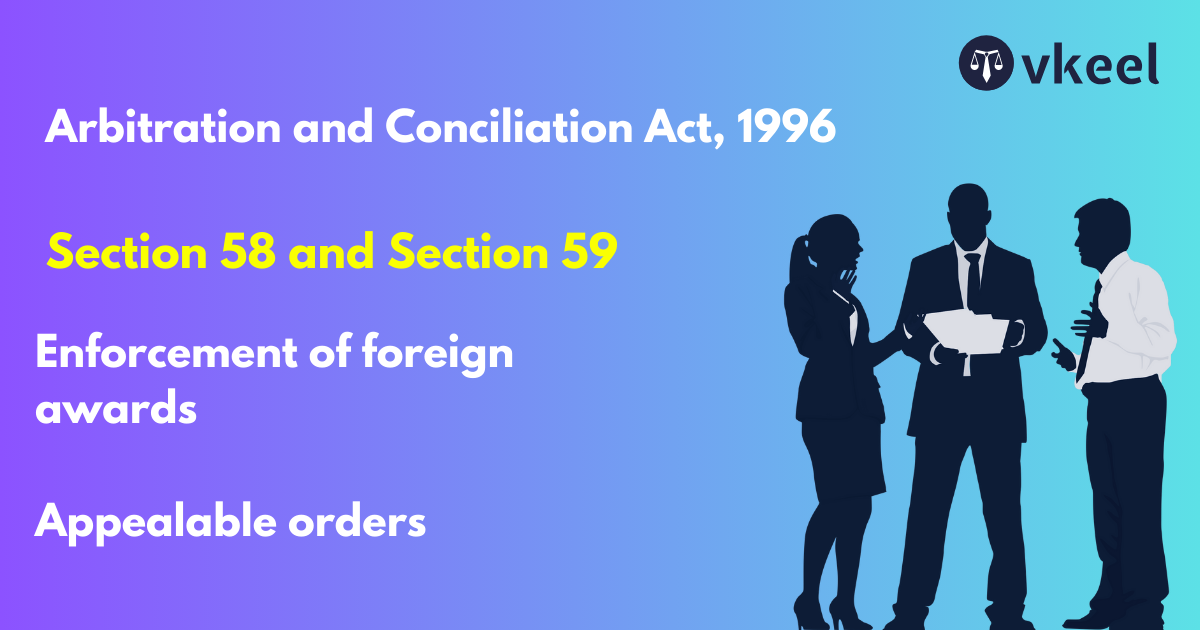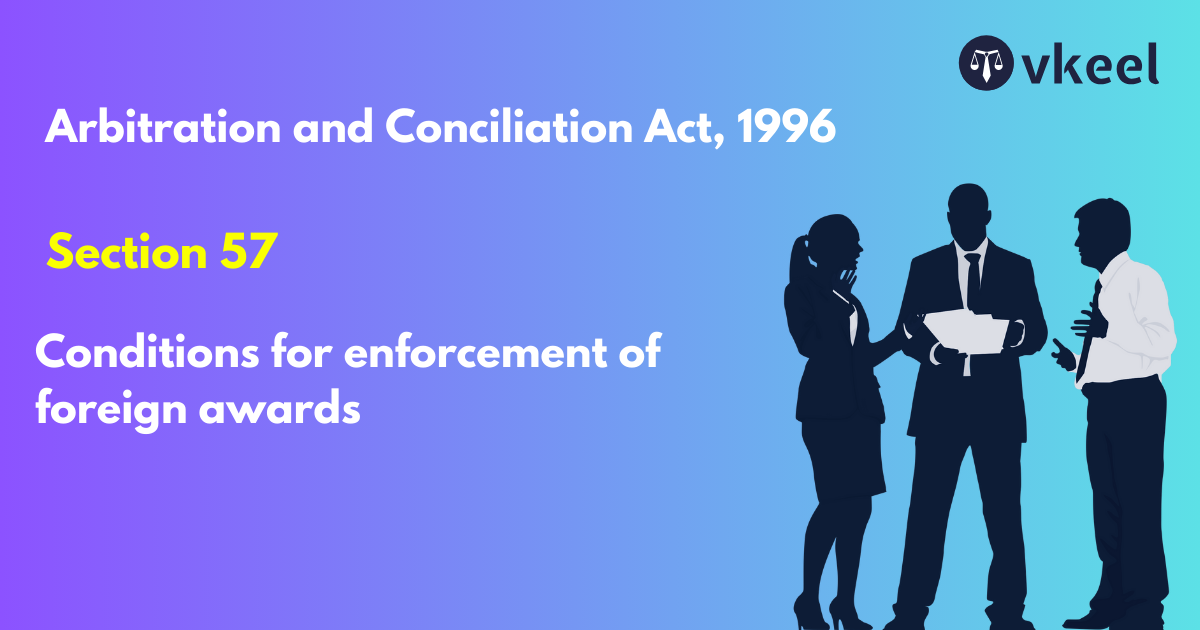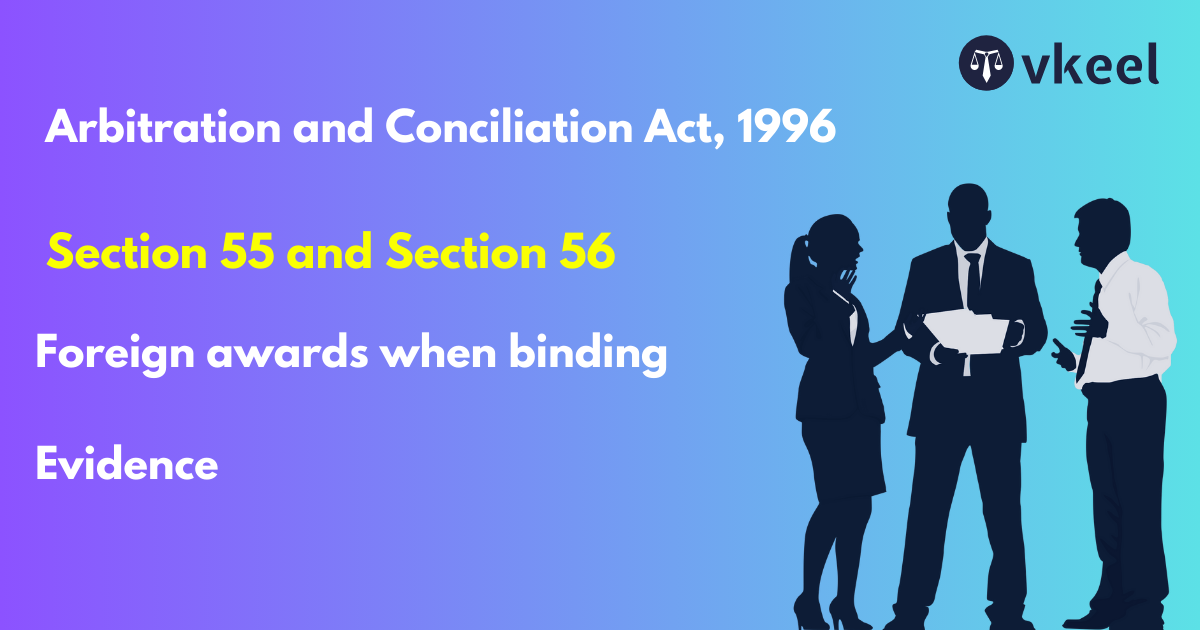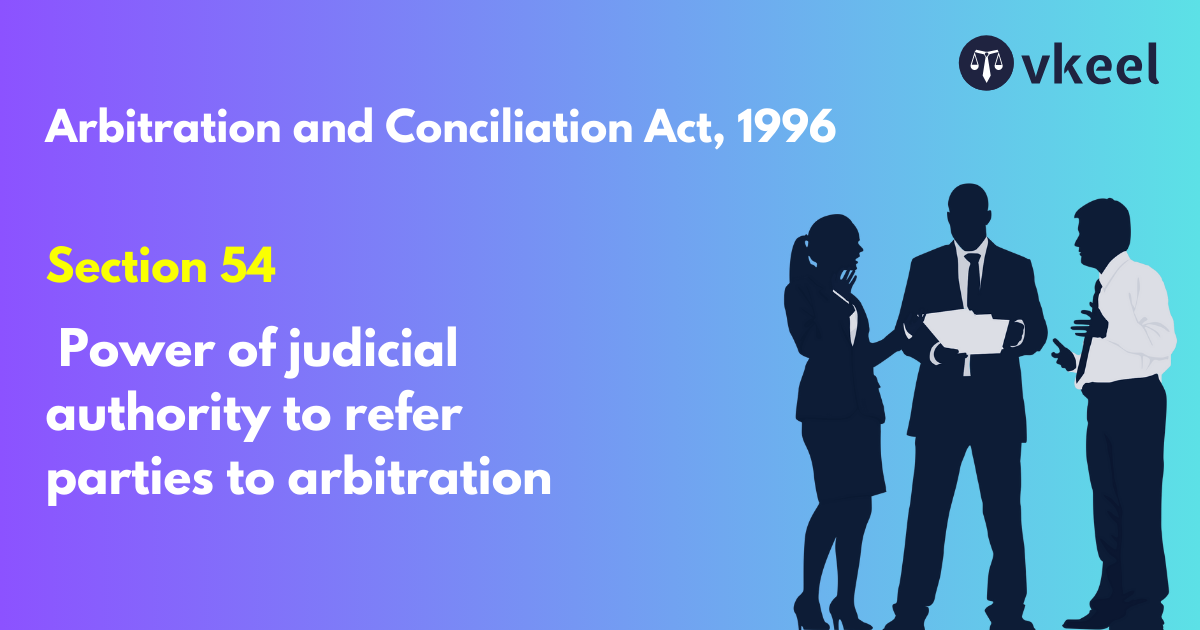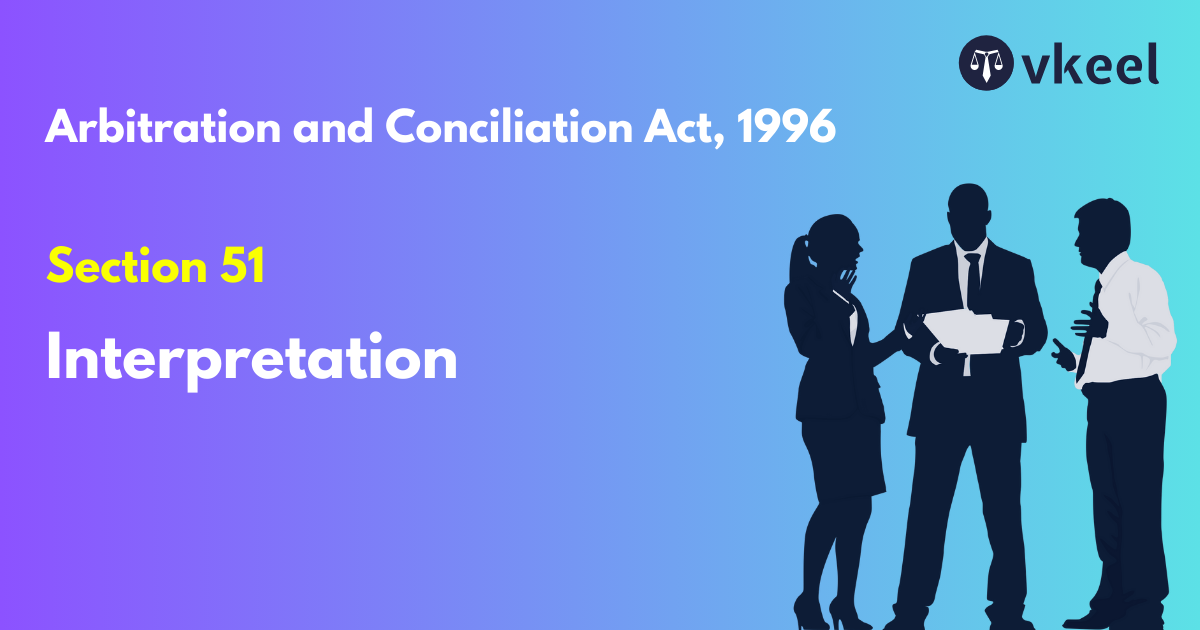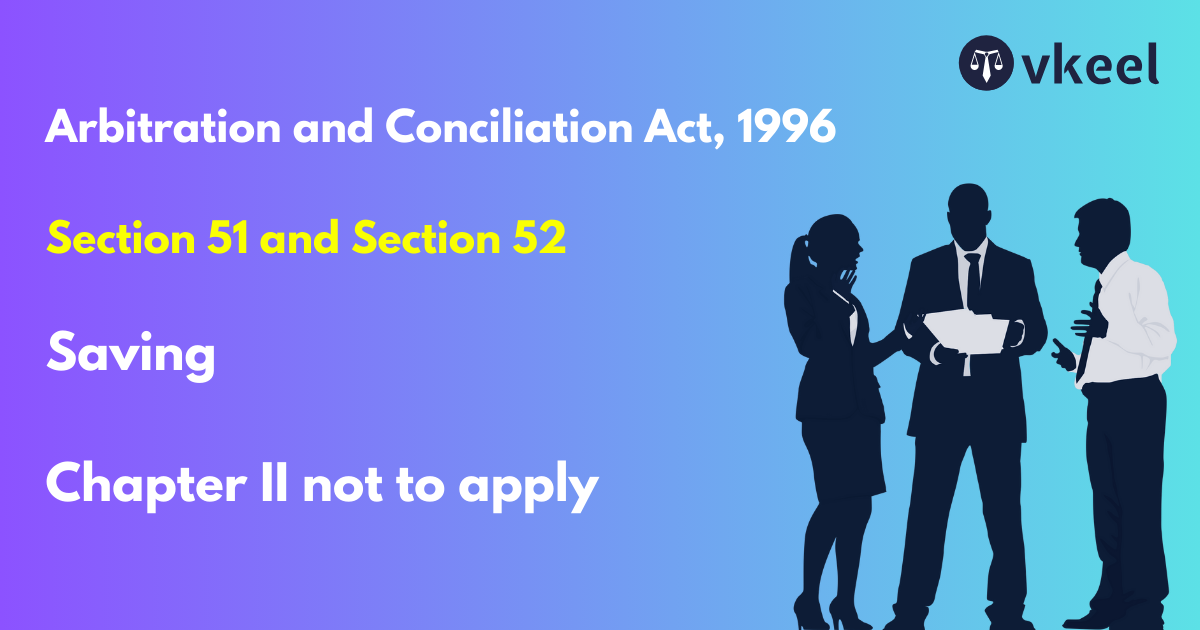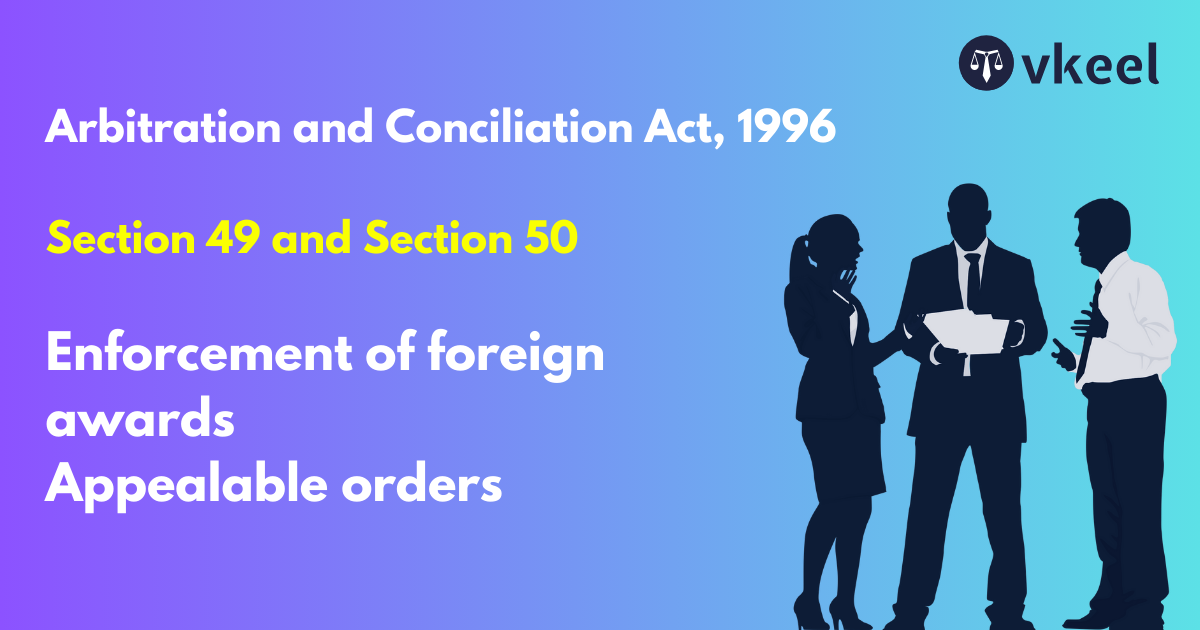Section 36: Arbitration and conciliation Act, 1996
By Nivedita Dhiman
Table of Contents
Introduction of Section 36
Section 36 of the arbitration and conciliation act suggests that while considering an application for stay filed long with or after filing of objection under section 34 of the act, if stay is to be granted then it shall be subject to such conditions as may be deemed fit. The provision makes it clear that the court has to have due regard to the provisions for grant of stay of a money decree under the provisions of CPC are to be taken into consideration.
Section 36 of arbitration and conciliation act
Enforcement
(1) Where the time for making an application to set aside the arbitral award under section 34 has expired, then, subject to the provisions of sub-section (2), such award shall be enforced in accordance with the provisions of the Code of Civil Procedure, 1908 (5 of 1908), in the same manner as if it were a decree of the court.
(2) Where an application to set aside the arbitral award has been filed in the Court under section 34, the filing of such an application shall not by itself render that award unenforceable, unless the Court grants an order of stay of the operation of the said arbitral award in accordance with the provisions of sub-section (3), on a separate application made for that purpose.
(3) Upon filing of an application under sub-section (2) for stay of the operation of the arbitral award, the Court may, subject to such conditions as it may deem fit, grant stay of the operation of such award for reasons to be recorded in writing:
Provided that the Court shall, while considering the application for grant of stay in the case of an arbitral award for payment of money, have due regard to the provisions for grant of stay of a money decree under the provisions of the Code of Civil Procedure, 1908 (5 of 1908).]
2[Provided further that where the Court is satisfied that a Prima facie case is made out that,–
(a) the arbitration agreement or contract which is the basis of the award; or
(b) the making of the award,
was induced or effected by fraud or corruption, it shall stay the award unconditionally pending disposal of the challenge under section 34 to the award.
Explanation.–For the removal of doubts, it is hereby clarified that the above proviso shall apply to all court cases arising out of or in relation to arbitral proceedings, irrespective of whether the arbitral or court proceedings were commenced prior to or after the commencement of the Arbitration and Conciliation (Amendment) Act, 2015 (3 of 2016).
Landmark Judgements of Section 36
Sundaram Finance Ltd v Abdul Samad, (2018)
As per the Code of Civil Procedure, the application of the decree-holder is made to the court which passed the decree, which issues the precepts to any other court competent to execute the said decrec. However, in the case of an award there is no decree passed bur the award itelf is executed as a decree by fiction. In terms of section 32 of the Arbitration and Conciliation Act, when an award is made, of which execution is sought, the arbitral proceedings already stand terminated on the making of the final award. Thus, section 42 of the Act, which deals with the jurisdiction issue in respect of arbitral proceedings, would not have any relevance.
M Ansuya Devi v M Manik Reddy, (2003)
Stamping and registration of the award is a matter which the court has to see only when the parties file the award for its enforcement under this section. The question whether an award requires stamping and registration is within the ambit of section 47 of the CPC and not covered by section 34
Commr, Kohlapur Municipal Corp v Fairdeal Constructions, 2008
An interim order cannot be said to be an interim award capable of execution if it fails to give a specific direction for the applicant to pay a certain sum of money to the respondent.
To make the order enforceable, it is incumbent upon the arbitrator to give dear directions to make payment for a certain sum of money if he had so intended.
Bulk Trading SA v Dalmia Cement (Bharat) Led, 2006
An order of the lower court can only be set aside in appeal. Such an order cannot in any case be set aside in execution petition and the trial court, therefore, after dismissing the objection, proceed to enforce the award in the same manner as if it were a decree of the court.
Bhawarlal Bhandari v Universal Heavy Mechanical Lifing Enterprises 1999
Where a decree in terms of the award was passed because no objections were filed and the decree was sought to be executed years thereafter, the execution of the decree belatedly, but within period of limitation, cannot give any sustainable right to the judgment debtor to challenge the execution proceedings on that ground. In execution proceedings such a contention requiring the executing court to go behind the decree cannot be sustained unless it can be shown that it was passed by a court having inherent lack of jurisdiction.
Klen ở Marshalls Manufacturers and Exporters Ltd v Power Grid Corp of India Ltd, 2012
A court executing a decree cannot go behind the decree. Between the parties or their representatives it must take the decree according to its tenor, and cannot entertain any objection that the decree was incorrect in law or on facts. Until it is set aside by an appropriate proceeding in appeal or revision, a decree even if it be erroneous is still binding between the parties.
Conclusion of section 36
The above-mentioned act prohibits a court of law from reopening a matter in regard to the sufficiency or otherwise of the stamp duty paid on an instrument in the event the same has been admitted in evidence.
Disclaimer:
The information provided in the article is for general informational purposes only, and is not intended to constitute legal advice or to be relied upon as a substitute for legal advice. Furthermore, any information contained in the article is not guaranteed to be current, complete or accurate. If you require legal advice or representation, you should contact an attorney or law firm directly. We are not responsible for any damages resulting from any reliance on the content of this website.

